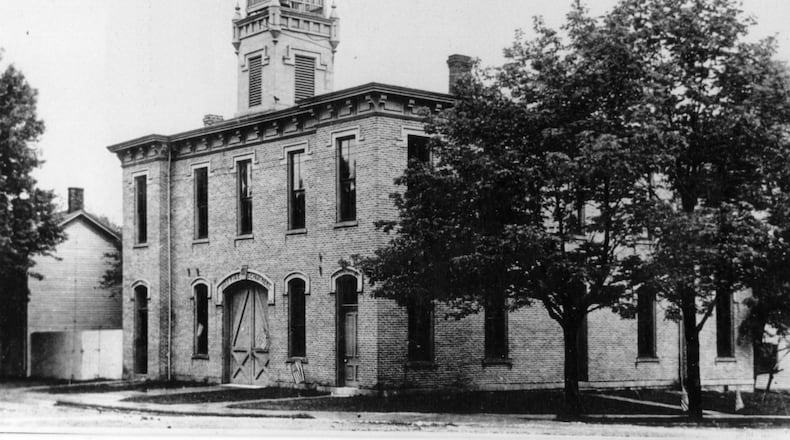The resolution supporting placement of the history marker in the area of the Uptown parks came to Council on a recommendation of the Historic and Architectural Preservation Commission, which voted Dec. 9 to recommend approval.
Dana Miller, vice chair of the HAPC, spoke to Council at a work session prior to the March 16 meeting about the project. Also speaking at the work session was Dr. Anthony James, of Miami University, who was part of a 2019 graduate class which initiated the idea here.
The proposed wording of the history marker planned for the Uptown parks has been reviewed. The statement as presented to City Council reads:
“During the 19th century, white mobs in Oxford lynched at least two Black men after kidnapping them from the old Town Hall Jail that stood near this site. In September 1877, a white mob stormed the jail to lynch a Black man named Simon Garnett. Without serious investigation, Mr. Garnett had been presumed guilty of assaulting a white woman.
“A mob led by the woman’s husband broke into the jail on September 2 and shot Mr. Garnett, who managed to survive. Upon learning that Mr. Garnett was alive, the mob attacked the jail again on September 3, shot Mr. Garnett at close range, and dragged him outside the jail, where he was left to die. On January 14, 1892, a white mob abducted Henry Corbin, a young Black man, from the jail to lynch him.
“Mr. Corbin’s employer, a white woman, had been found dead in her home on January 5. A mob quickly formed when the woman’s daughter accused Mr. Corbin of the killing. Mr. Corbin’s family maintained the accusation was false and that the daughter had implicated him to hide her own involvement in the crime. Mr. Corbin was captured after being wounded and was brought to the jail, but the mob seized Mr. Corbin from his cell, hanged him from a tree, and shot him over 400 times.
“Local officers failed to prevent either lynching, which terrorized Oxford’s Black community. In the end, no mob participants were held accountable for the lynchings of Simon Garrett and Henry Corbin.”
Community Development Director Sam Perry introduced the topic both at the work session and at the Council meeting when the resolution came up on the agenda.
Perry explained that James and Dr. Valerie Robinson began in spring 2019 offering a graduate school and Department of Family Science one-credit hour class entitled “The Truth and Reconciliation,” which linked Miami and the city with the Equal Justice Initiative in Montgomery, Alabama.
“The marker was originally planned for 2020 but it was delayed by the pandemic,” Perry told Council.
In his staff report to Council, Perry explained, “Dr. James and Dr. Robinson plan to have the marker unveiled for the National Civil Rights Conference on June 20-22.”
Miami University will host the 10th Annual National Civil Rights Conference this summer. Miami was chosen to host the conference because of its sponsorship of the conference, its history of activism tied to Freedom Summer and the numerous civil rights landmarks and sites around campus. The theme for the 2021 conference is “Rise, Advocate, Educate and Cooperate: The Challenge of Change.”
Fran Jackson, president of the Oxford Branch of the NAACP, spoke at the public participation time of the meeting itself and said the organization supports placement of the marker to raise awareness of racial terrorism.
“I am concerned about the historical accuracy of the marker. Something is missing for me,” she said. “Lynching is horrific. For the past year or two, we have been seeing bigotry coming out of the closet. I would like to highlight the beauty and what we have done through hardships and turmoil. I would like to see some of the joy of Black resilience, where we go beyond just the marker.”
Council member Edna Southard, who introduced the resolution, said acknowledging the history is important but is only the beginning.
At the work session, she said it is important to recognize the past.
“This country is not doing a good job (of acknowledging its past). This is a first step that should open the doors to discussion,” she said, adding some Jews were also lynched in the country’s past. “Hatred is equal opportunity. Collective memory work is important.”
About the Author
